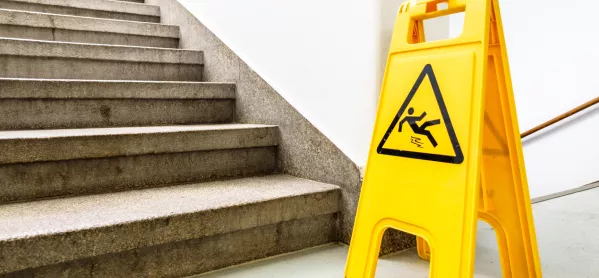Want powerful PSHE? Then ‘trip over the truth’

A book I have been reading recently that has really given me food for thought is The Power of Moments: why certain experiences have extraordinary impact by Chip and Dan Heath.
The premise of the book is to, firstly, show us what these meaningful and memorable moments consist of and the traits they seem to have in common.
Secondly, the book shows us how we can work to create our own defining moments to enrich our lives and make meaningful memories.
These moments can be constructed if we put the work into them.
Moments of insight
The book posits that our most memorable and positive moments tend to be dominated by four main elements: elevation, insight, pride and connection.
The element that I wanted to focus on here is insight. Moments of insight are those moments that deliver transformations and realisations.
Some insights are small and meaningful - others can deliver a large jolt.
The emotions attached to these moments of insight can be dark (“I don’t believe in what I’m doing any more”, “I can’t do this”) or experienced as a positive eureka moment (“This is the person that I’m going to spend the rest of my life with”).
One way that the book discusses how we can construct a moment of insight is to create a situation where people “trip over the truth”.
Trip over the truth
To trip is to catch your foot on something and fall. To trip over the truth is to catch your brain on something and struggle with it.
More specifically, this can mean to trip over the truth about a problem that, in turn, leads to a moment of insight and transformation.
However, we can’t formulate the solution until we truly appreciate the problem. In the book, the Heath brothers discuss the problem that often accompanies the designing of a curriculum.
While they use examples of designing curricula in higher education, this could be extended to any curriculum. In this case, it might be applied to the PSHE curriculum and the way it could be delivered in schools.
For me, PSHE represents some of the most important concepts and skills that any student will come across in terms of health and wellbeing, relationships and living in the wider world.
These lessons transcend the classroom, extend beyond the school experience, and could and should be transformative.
Meaningful PSHE
However, in reality, PSHE lessons can mean already busy teachers scrambling to find the materials to cover the content outlined, often starting with the content first and then working out how we can deliver it in class-size chunks over the number of sessions we have - an outcome that leads to lessons that might tick the boxes but little else.
But what if we flipped it and focused less on what we need to cover and more on what skills we want our students to develop, and assess how well they are developing them then? How different PSHE could be.
Maybe this seems logical but how can we take this “knowledge” and trip over it? By working backwards.
Imagine you have a brilliantly engaged and behaved class with perfect memories. Then fill in these blanks:
- In three to five years’ time, my students still know...
- They are still able to…
- They still find value in…
I recently asked this question to a colleague in relation to the PSHE curriculum and her answer centered around her wanting students in three to five years’ time to “be able to make good decisions”.
Another colleague said that they wanted students to know “how to have and maintain healthy relationships”.
My colleagues’ answers had nothing to do with PSHE content.
The truth that they tripped over was that it was more important for students to be able to develop the skills to make a lifetime of “better” decisions, rather than simply retaining information.
Perhaps, for example, they need to know less factual information about alcohol consumption, and instead need to be able to recognise if they or anyone they care about are using alcohol in an unhealthy way, and how to respond to that.
Working in this way means PSHE would quickly transform from something that simply runs through a curriculum of content to something that truly informs our pupils for years to come - and ensure that the defining moments of their lives are happy and meaningful.
Sadie Hollins is head of sixth form at a British-curriculum school in Thailand, and has been teaching internationally for two years
You need a Tes subscription to read this article
Subscribe now to read this article and get other subscriber-only content:
- Unlimited access to all Tes magazine content
- Exclusive subscriber-only stories
- Award-winning email newsletters
Already a subscriber? Log in
You need a subscription to read this article
Subscribe now to read this article and get other subscriber-only content, including:
- Unlimited access to all Tes magazine content
- Exclusive subscriber-only stories
- Award-winning email newsletters